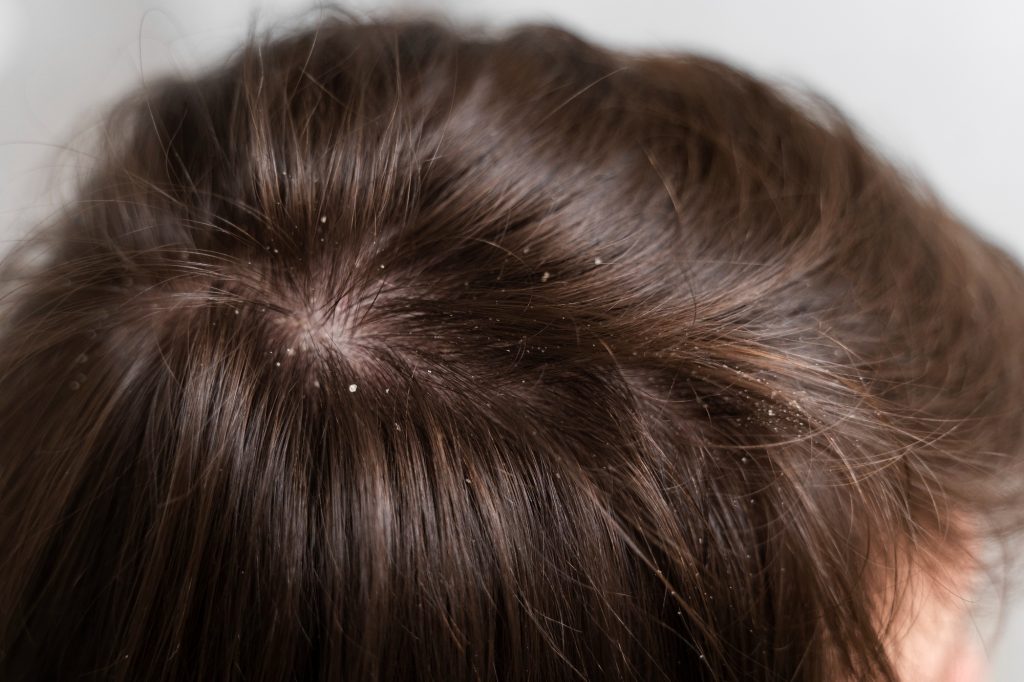Discover the causes of scalp sensitivity and learn effective treatment options in this informative article.
What Causes Scalp Sensitivity and How to Treat It
Do you find yourself constantly scratching your head, feeling like your scalp is on fire? If so, you might be dealing with scalp sensitivity. Don’t worry, you’re not alone! Many people experience this uncomfortable condition, but the good news is that there are ways to treat it and find some relief.

Understanding the Triggers of Scalp Sensitivity
Before we dive into the solutions, let’s take a closer look at what causes scalp sensitivity in the first place. There are a few common culprits that can leave your scalp feeling irritated and tender.
One of the main triggers of scalp sensitivity is using harsh hair products. Shampoos and conditioners that contain chemicals like sulfates and parabens can strip your scalp of its natural oils, leaving it dry, itchy, and more prone to sensitivity.
Another culprit is excessive heat styling. Your trusty blow dryer and flat iron might be making your hair look fabulous, but they could also be wreaking havoc on your scalp. The intense heat can cause inflammation, leading to sensitivity and discomfort.
If you’re a fan of experimenting with new hairstyles, keep in mind that tight ponytails, braids, and buns can also contribute to scalp sensitivity. These styles put tension on your scalp, which can lead to irritation.
Additionally, environmental factors can play a role in triggering scalp sensitivity. Exposure to extreme weather conditions, such as excessive sun exposure or cold and dry air, can leave your scalp feeling sensitive and irritated.
Furthermore, certain medical conditions can also cause scalp sensitivity. Conditions like psoriasis, eczema, and seborrheic dermatitis can all lead to a sensitive scalp. These conditions can cause inflammation and flakiness, making your scalp more prone to sensitivity.
Identifying the Symptoms of Scalp Sensitivity
Now that you know what causes scalp sensitivity, you’re probably wondering how to tell if you’re suffering from it. Don’t worry, the symptoms are pretty straightforward.
The most obvious sign is persistent itchiness. If you find yourself scratching your head more often than not, it’s a clear indication that your scalp is not in a happy place. You might also notice redness and irritation or even a burning sensation on certain areas of your scalp.
Some people may experience flakiness or dandruff, which can be a result of scalp sensitivity. It’s not only embarrassing but also uncomfortable to deal with those pesky white flakes.
In severe cases, scalp sensitivity can lead to hair loss. If you notice excessive shedding or thinning of your hair, it’s essential to address the sensitivity issue promptly to prevent further damage.
It’s important to note that scalp sensitivity can vary from person to person. Some individuals may experience mild symptoms, while others may have more severe reactions. If you’re unsure whether you have a sensitive scalp, it’s always best to consult with a dermatologist or a trichologist who can provide a proper diagnosis and recommend suitable treatments.
Soothing Solutions for a Sensitive Scalp
Now that you’re armed with knowledge about the causes and symptoms of scalp sensitivity, let’s move on to the much-awaited solutions. These are not only effective but also gentle on your scalp.
Living with a sensitive scalp can be quite challenging. The constant itchiness, dryness, and irritation can make it difficult to focus on anything else. But fear not, there are natural remedies that can provide relief and soothe your sensitive scalp.

Natural Remedies for Scalp Sensitivity
When it comes to soothing your sensitive scalp, nature has your back. Aloe vera gel is a fantastic natural remedy as it has anti-inflammatory properties. Simply apply it to your scalp and leave it in for a few minutes before rinsing it out. The cooling sensation of aloe vera will instantly calm any irritation and redness.
Chamomile tea can also work wonders for your sensitive scalp. Brew a strong cup, let it cool down, and use it as a final rinse after shampooing. Chamomile has soothing properties that can alleviate itchiness and reduce inflammation. Plus, the pleasant aroma will leave your hair smelling fresh and fragrant.
Another great option is coconut oil. Not only does it moisturize your scalp, but it also has antimicrobial properties. Massage warmed coconut oil into your scalp and leave it on overnight for a nourishing treatment. Just make sure to wash it out thoroughly in the morning to avoid any greasiness.
Now that you know about these natural remedies, you can incorporate them into your hair care routine to provide relief and nourishment to your sensitive scalp.
Tips for Choosing Scalp-Friendly Hair Products
When it comes to hair products, opting for scalp-friendly options is the way to go. Harsh chemicals and irritants in hair products can exacerbate scalp sensitivity and cause further discomfort. Look for shampoos and conditioners that are free of sulfates, parabens, and artificial fragrances.
These gentle formulations will cleanse your hair without stripping your scalp of its natural oils. They are specifically designed to be mild and soothing, making them ideal for those with sensitive scalps. Additionally, they often contain ingredients like tea tree oil or lavender oil, which have calming properties and can provide relief for your itchy scalp.
Remember to read the labels carefully and choose products that are specifically labeled for sensitive scalps. These products are formulated with the needs of sensitive scalps in mind, and they can make a significant difference in improving the health and comfort of your scalp.
By following these tips and incorporating natural remedies into your hair care routine, you can effectively manage and soothe your sensitive scalp. Say goodbye to constant itchiness and irritation, and hello to a healthier, happier scalp!
Seeking Professional Help for Scalp Sensitivity
If your scalp sensitivity is persistent and causing you a lot of discomfort, it might be time to consult a dermatologist. They will be able to determine the underlying cause of your sensitivity and recommend appropriate treatments.
Scalp sensitivity can be a frustrating and uncomfortable condition to deal with. It can manifest as itching, redness, flaking, or even pain. While some people may find relief by using natural remedies or switching to scalp-friendly products, others may require more specialized care.
When to Consult a Dermatologist for Scalp Issues
If you’ve tried natural remedies and switched to scalp-friendly products but still aren’t finding relief, it’s time to seek professional help. A dermatologist can diagnose any underlying skin conditions, such as psoriasis or eczema, which may be causing your scalp sensitivity.
Psoriasis is a chronic autoimmune condition that can affect the scalp, causing red, scaly patches. Eczema, on the other hand, is a condition characterized by dry, itchy, and inflamed skin. Both conditions can be managed with the help of a dermatologist.
When you visit a dermatologist, they will conduct a thorough examination of your scalp and ask you about your symptoms and medical history. They may also perform additional tests, such as a scalp biopsy, to determine the exact cause of your sensitivity.
Based on their findings, your dermatologist will develop a personalized treatment plan tailored to your specific needs. This may include medicated shampoos, topical creams or ointments, or oral medications. It’s important to follow your dermatologist’s instructions carefully and be patient, as it may take time to see improvements.
Medical Treatments for a Sensitive Scalp
In some cases, over-the-counter treatments may not be enough to calm your sensitive scalp. In these situations, your dermatologist may suggest stronger medical treatments.
Corticosteroid injections are one option that your dermatologist may recommend. These injections can help reduce inflammation and relieve itching, providing you with much-needed relief. However, it’s important to note that corticosteroid injections are not a long-term solution and should be used sparingly.
Another treatment option for scalp sensitivity is light therapy, also known as phototherapy. This involves exposing the affected areas of your scalp to a specific type of light that helps reduce inflammation and promote healing. Light therapy can be an effective treatment for scalp conditions like psoriasis.
It’s important to remember that everyone’s scalp is unique, so what works for one person may not work for another. Your dermatologist will work closely with you to find the most suitable treatment option for your scalp sensitivity.
Now that you’re armed with knowledge about scalp sensitivity and its treatment options, you can tackle your itchy scalp with confidence. Remember, taking care of your scalp is just as important as taking care of the rest of your body. So be kind to your scalp, and it will repay you with healthy and happy hair!
If you have any concerns or questions about your scalp sensitivity, don’t hesitate to reach out to a dermatologist. They are the experts in diagnosing and treating scalp conditions and can provide you with the guidance and support you need.





